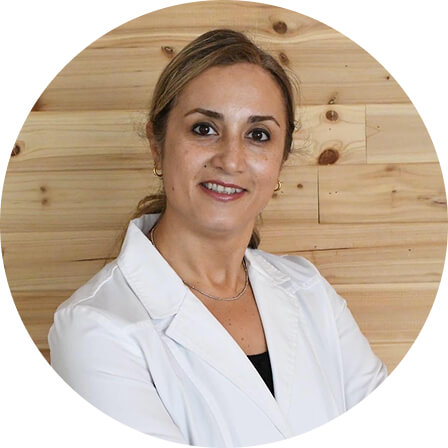Polycystic ovarian syndrome (PCOS) is a condition that involves many complex hormonal changes. It affects 6-12% of women of reproductive age. Rather than being a single disorder, PCOS involves a variety of hormonal imbalances that can have both metabolic and reproductive effects throughout the body. The condition can result in irregular periods, difficulty with ovulation, excess androgen, and insulin resistance that can contribute to weight gain and a higher risk of type 2 diabetes.
If your symptoms are mild, you can manage them by consulting a general gynecologist or your primary care physician. These providers can often help regulate menstrual cycles, offer birth control options, and even address some metabolic symptoms. However, seeing an endocrinologist is necessary if you are experiencing more severe symptoms or complications.
In this blog, you will get to know when you should see an endocrinologist for PCOS and when you can consult a general gynecologist or primary care physician.
When To See an Endocrinologist for PCOS?
Certain situations where Dr. Kehinde Folawewo recommends consulting an endocrine specialist for PCOS include:
Severe hormonal symptoms: You should see an endocrinologist if you have significant symptoms such as excessive hair growth, acne, or thinning hair that aren’t manageable with over-the-counter treatments. Such issues are related to hormonal imbalances, where you’ll need an expert’s help. When consulting them, you will get a targeted treatment, which is often not possible when consulting a general doctor.
Infertility issues: If you are facing infertility because of irregular ovulation or other reproductive complications, it might be time to see an endocrinologist. PCOS is a leading cause of ovulatory infertility, and an endocrinologist can offer treatments to regulate your menstrual cycle and improve your chances of conception.
Insulin resistance in diabetes: PCOS generally is often associated with insulin resistance as it can cause difficulty in managing weight and increase the risk of type 2 diabetes. When you experience unexplained weight gain or find it difficult to lose weight, you should consider seeing an endocrine specialist. They can help manage blood sugar levels and create a customizable plan for your diet and lifestyle.
Uncontrolled symptoms: If you have been experiencing uncontrolled symptoms, such as irregular periods, acne, or excess hair growth, then it’s advisable to consult an endocrinologist. They provide specialized care to help you manage your health and improve your overall health condition.
Concerns about long-term health risks: PCOS can increase the risk of conditions such as metabolic syndrome, heart disease, and diabetes. If there’s a family history of such conditions, it might be best to schedule an appointment with an endocrinologist. They can conduct necessary tests, provide guidance on how to reduce risk, and help you develop a strategy that will lessen the risks of developing health conditions.
When General Care May Be Sufficient
While some situations require you to immediately see an endocrinologist, you can visit a general practitioner or gynecologist in the following cases:
Mild symptoms: You don’t need to visit an endocrinologist when you have relatively mild and manageable symptoms, such as occasional irregular periods or mild acne. Many women with mild issues can successfully manage their condition through changes in their lifestyle and diet.
When menstrual irregularities are your main concern: When you primarily face menstrual cycle irregularities, you can visit your general gynecologist. As these conditions are not severe, they will help you address them by providing birth control, hormonal therapy, or other simple treatments.
No issues with fertility: If you’re not currently trying to conceive or experiencing fertility issues, and your PCOS symptoms are otherwise under control, you might not be required to see an endocrine specialist.
Weight management: Your primary care doctor can guide you if there are issues with basic weight management. They might provide you with dietary advice, exercise programs, or medications to help control your weight.
In these cases, seeing an endocrinologist may not be essential, and you can continue your general care. However, if your symptoms worsen or become more complex, you should seek further specialized care.
Conclusion
While seeing an endocrinologist is essential for managing severe PCOS symptoms, infertility issues, or complications related to hormonal imbalances, you can manage mild symptoms and routine care with a general physician or gynecologist.




